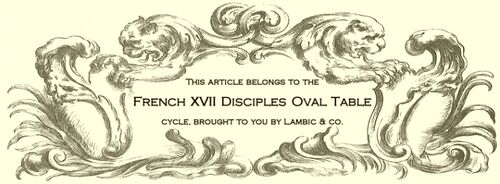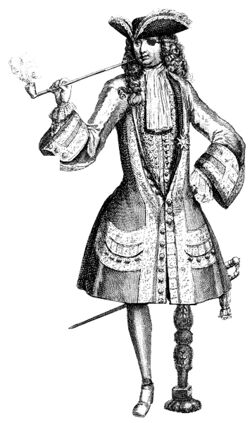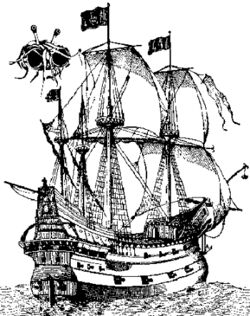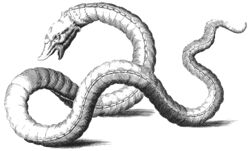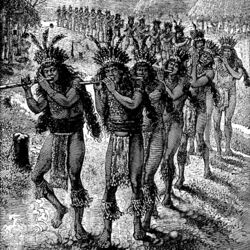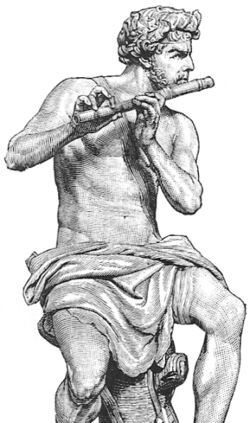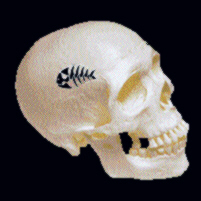Jean Bart
“Why are Pirates called Pirates? Because they Arrrrr!”
“Jean Bart's body lies a'mould'ring in the grave, / Jean Bart's body lies a'mould'ring in the grave, / Jean Bart's body lies a'mould'ring in the grave, / But his soul's sailing on!”
Jean Bart (21 October 1651 – 27 April 1702) was probably the most famous Flemish Pirate ever. Narrow-minded people tend to say he was the only Flemish Pirate, but we don't count those amongst our readers, do we? Moreover, who the fuck cares if there were any other pirates from Flem. Jean Bart was cool and he is the only Flemish pirate needed. (Batteries Not Included)
The landlubber[edit]
Flanders[edit]
Jean Bart [1] always wanted to be a Pirate, which wasn't an easy thing to perform on the river Zenne, in Brussels. So, at age 12, he took off to Antwerp, Flanders most prominent port town. But, although they considered themselves the center of the universe, and usually would jump on each novelty, the Antwerpians didn't want to hear of a Pirate establishing his business in the port of Antwerp. Neither did the citizens of Ostend. Nor those of Westend. Even the Bruges' population didn't want of this ambitious boy, and they failed to foresee how great a man would grow out of him. So he set sail to Dunkerque[2]. Well, he didn't exactly sail the way we understand sailing: being short of cash, he had to borrow one of Simon Stevin's sailcarts, those so-called "land yachts", and go over land. The idea of going over land without looking totally like a landlubber, made him very grateful to the ingenious inventor.
France[edit]
Dunkerque (or "Duinkerke", as the Flemish continued to name it meaning church in the dunes) was a Flemish speaking French port, and looking for some comic relief. Rather far away from Paris and Versailles, they didn't share the "Rabane" fun, nor did they enjoy the polemics around the poems of Jean de la Fontaine. Jean Bart coming in at nearly 120 Kmph was something of a spectacle, culminating in his crashing against the belfry. Luckily, it was market day, and a vegetable stall absorbed the shock. Still, having to face seven adult bears when looking up, isn't an average image one gets when visiting Dunkerque for the first time. The bears belonged to the Tambourine Kid, who seemed to possess a magical influence over all living creatures through dancing and tambourine playing.
The Pirate[edit]
Ships[edit]
Jean Bart's ships were easy to recognize, because of their prow figure in the shape of a Royal Dolphin. Other French Pirates weren't allowed to use this shape, but Jean was not a common Pirate. Or as he put it himself: "Arrrrr! I be a noodly touched Pirate, and RAmen to you all!". Obscure words, but listened to without offense, because there usually wasn't any representative of the French clergy aboard.
Expeditions[edit]
His expeditions were truly blessed by the presence aboard of Wench Elisabeth, aka the Tambourine Wench. Her dancing and tambourine playing calmed down whatever fierce creature emerged from the sea. Her Sea Snake Charming was especially spectacular, and so where the drawings she made of the creatures met! Jean Bart eventually married his Wench, and they never parted since.
The explorer[edit]
Jean Bart was only a part time Pirate. With his piratical earnings he organised scientific expeditions all over the world. Most of those have been reported by Charles Perrault in a series of books he dedicated to the Pirate.
Skid Valley[edit]
Jean Bart's most related (by himself that is: none of his crewmembers ever talked about it), but least documented expedition was the one to the land of the Thong Dynasty, aka as "the trip to Skid Valley". Wild stories from a clearly disturbed mind, stories that emerged at the very end of his life, and that brought an ecstatic glow in his otherwise dim eyes.
The Fouitouitt[edit]
The discovery of the "Fouitouitt" tribe was to have an unforeseen impact on European musical history. When he first set foot on their island, he thought they were welcoming him with a flute concert. Unlike the "recorder" type of flute used in Europe, they held their instrument horizontally. But their playing turned out to be their language: they also called themselves something that sounded like "Fouitouitt" in a Frenchman's ears, and like "Fweetweet" in an Englishman's ears. The flute he brought home from this expedition made the Royal Serpent Player Guillaume Poitevin switch from his improbable instrument, inspired by Jean Bart's earlier tales about Sea Snakes, to this new instrument. After causing most of the Baroque composers to write for this novelty instead of for the recorder[3], "Touiti"[4]Poitevin set sail to the Fouittouitt island, and never was heard of again.
The famous man[edit]
Court life and literature[edit]
Being a welcome guest at King Louis XIV's court, he had the chance to meet such interesting persons as Jean de la Fontaine, Molière, Lully and Louis "Rabane" Quatorze, and eventually had a poem dedicated to his life and achievements. He liked the poem so much, that he couldn't resist the urge to take it with him, on whichever voyage he undertook. He was the only one ever (after De la Fontaine, of course) to read it, and he used to recite from it, at dusk, when on a calm sea. Hence the fragments that circulated amongst members of his crew, but probably mutilated. The fragments, not the members. Not the members of the crew, I mean.
Jean Bart the Disciple[edit]
He was the one who came up with the noodly inspired idea of the French XVII Disciples Oval Table, and when they decided to expand the group, he brought his Wench when they held their First Convention in 1670. Jean and Elisabeth were the most colourful Disciples. Her wearing of brightly coloured ribbons did a bit to it too, of course, but you get the point. Or the comma, as Simon Stevin would jest. Bart was very popular amongst those intellectuals (if we don't count in the Royal Dolphin or Strogov), whom he could always cheer up with a tasteful joke.
Last years[edit]
He spent his last years in a little apartment King Louis gave him, as a reward for his service to the Crown (social security wasn't as developed as it is nowadays in civilized countries[5]). He used to sit in his comfy chair, reciting parts of the poem mentioned earlier, while scratching his peg leg with his hook. This peg leg was specially designed for him by André Charles Boulle, the King's First Cabinetmaker. His loving Wench nursed him, and took great care of preventing Jean from scratching his face as well. It was a well-known fact that he lost his left eye that way, and nobody would like to see him blind. After his death, Elisabeth went back to Dunkerque, and spent the rest of her years in a little cottage the Sunny King had given to her.
Jean Bart's body[edit]
When Jean Bart's body was unburied from the Paris Père Lachaise cemetery in 2005, in order to rebury it in Dunkerque, his skull showed a black fish bone-like tattoo. The fish seems to wear an eye-patch too. It was probably this tattoo that inspired Bobby Henderson's famous "Jolly Fish" FSM emblem.
Footnotes[edit]
- ↑ "Jan Baert": people used to mix up letters back then, before Spell Check came in. Jan Baert meant John with the beard
- ↑ Dunkirk in foreign manuals.
- ↑ And thus causing the recorder to disappear for quite some time, only to reappear halfway the XXth Century
- ↑ "Tweety" in foreign manuals
- ↑ Or as it should be there: exceptions still exist.
